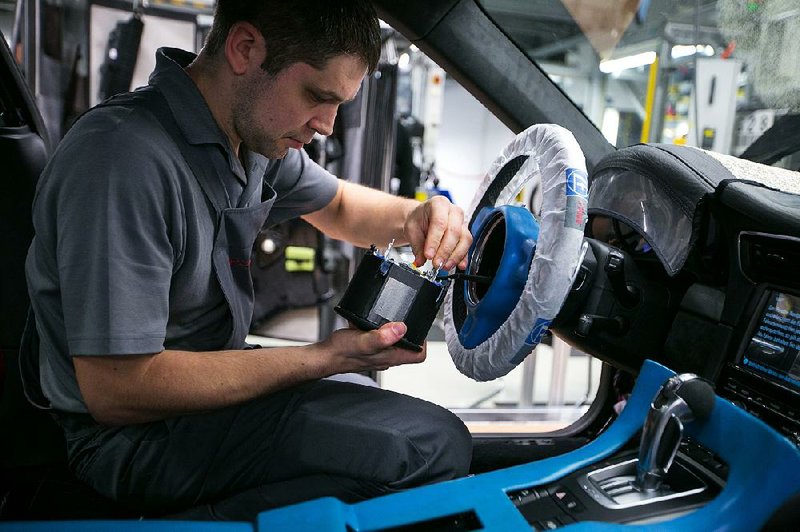DETROIT -- Eight automakers are recalling more than 12 million vehicles in the U.S. to replace potentially dangerous Takata air-bag inflators.
Documents detailing recalls by Honda, Fiat Chrysler, Toyota, Mazda, Nissan, Subaru, Ferrari and Mitsubishi were posted Friday by the National Highway Traffic Safety Administration.
They're part of an expansion of Takata air-bag recalls announced earlier this month. Seventeen automakers are adding 35 million to 40 million inflators to what already was the largest auto recall in U.S. history.
In addition, the Japanese transport ministry on Friday announced 7 million more Takata-related recalls covering air-bag inflators without a chemical drying agent.
Friday's U.S. recalls include passenger air bags in older models in areas along the Gulf Coast with high heat and humidity. But other areas of the country are also affected depending on the age of vehicles.
Takata uses the chemical ammonium nitrate to create a small explosion that inflates air bags in a crash. But the chemical can deteriorate over time when exposed to high heat and humidity and burn faster than designed. That can blow apart a metal canister, spewing hot shrapnel into vehicles.
The inflators are responsible for 11 deaths and more than 100 injuries worldwide. Two more deaths are under investigation in Malaysia.
The recalls are among the first unveiled by automakers since Takata agreed May 4 to the recall expansion, and more will be announced in the coming week. The recalls are being phased in by the government because there aren't enough replacement parts. Models from 2011 or older in high heat and humidity areas will get first priority, followed by 2008 and older models in Southern-tier states, then 2004 and older models in the rest of the country.
Research has shown that it takes at least six years for the ammonium nitrate to deteriorate. That's the reason older models get priority.
Honda had the biggest recall total on Friday with more than 4.5 million inflators, while Fiat Chrysler reported 4.3 million. The Honda total includes about 2,700 Gold Wing motorcycles with optional front air bags.
Honda says the latest recall covers only about 2.2 million additional Honda and Acura vehicles. The other 2.3 million vehicles were recalled previously for Takata problems. Honda expects the recalls to start in late summer for automobiles and in late fall for the motorcycles.
Fiat Chrysler said it's not aware of any crashes or injuries involving its vehicles that are part of the recall.
The latest recalls cover mainly front passenger inflators without the chemical drying agent. The jury is still out on whether Takata will have to recall millions more inflators with the drying agent. Takata has to prove to the government that those are safe by the end of 2019, or they will be recalled.
Before the latest expansion, automakers had recalled 28.8 million Takata inflators, so as many as 69 million could be recalled in the U.S. alone. The numbers have raised concerns about Takata's financial survival. The Japanese parts supplier has hired advisory firm Lazard to restructure its finances, and automakers likely will have to shoulder some costs.
More information about the recalled models is available through databases at https://vinrcl.safercar.gov/vin/. The site asks visitors to key in their vehicle identification number, which can be found on the driver's side of the dashboard near the windshield or on state vehicle registrations. It may take several weeks for all the newly recalled vehicles to be entered into the databases.
Business on 05/28/2016

